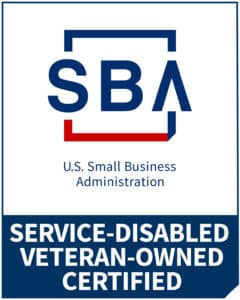
Networking in government contracting can be as tricky as navigating a bureaucratic maze. But it’s also your golden ticket to success, so grab your business cards and your best “I’m totally paying attention” face, and let’s dive into building a network that won’t feel like a chore. Here’s your (slightly funny) guide to making connections that count:
Welcome to government contracting’s version of Comic-Con—except instead of superheroes, it’s filled with contracting officers, industry execs, and business developers. Conferences like the National 8(a) Association Small Business Conference and the Association of the United States Army Annual Meeting & Exposition are basically speed-dating events for your business. So go ahead, introduce yourself, ask a few questions, and hand out those business cards like you’re Oprah giving out cars. Oh, and don’t skip the workshops or panels—that’s where you can soak up the latest industry gossip while pretending to take notes.
Since the pandemic, a lot of networking has gone digital, meaning you can now mingle with potential clients and partners in your pajamas (but maybe don’t turn the camera on). LinkedIn groups, webinars, and industry forums are the virtual cocktail parties of government contracting. Jump into discussions, share your expertise, and impress people with your witty comments. Who needs a handshake when a well-timed meme can do the trick?
Want to unlock exclusive access to government bigwigs and fancy events? Join organizations like the Armed Forces Communications and Electronics Association (AFCEA), National Contract Management Association (NCMA), or the Professional Services Council (PSC). Not only do these groups offer networking, but they also give you a chance to flex your skills at training sessions and conferences. It’s like getting VIP access—except instead of meeting celebrities, you’re rubbing elbows with contracting officers (which, let’s be real, is almost as cool).
Let’s be honest—if you’re not on LinkedIn, do you even exist in the professional world? Building your social media presence is crucial, so start posting insightful industry tips (and maybe the occasional GIF). Engage with your network by liking and commenting, and watch as people start thinking, “Wow, this person knows their stuff.” Before you know it, potential partners and clients will come to you—just like that cat meme that got 500 likes.
Networking doesn’t end after exchanging business cards or a LinkedIn request. To avoid being “that person” who only reaches out when they need something, follow up with a friendly email or message. Periodically check in with your contacts—send them a helpful article or just say hi. Relationships are like plants; if you don’t water them, they’ll shrivel up and die. So, keep your network alive and flourishing by being that thoughtful person who always stays in touch.
Conclusion: In government contracting, your network is like the secret ingredient in grandma’s recipe—it’s just as important as all the other stuff (maybe more). So, get out there (or stay online), build those connections, and don’t forget to keep them alive! Before long, your network will be the support system you didn’t know you needed, helping you navigate the wonderful, confusing, and sometimes absurd world of government contracts.

©2025 Ghostwerks. All rights reserved. Privacy Policy. Terms of Use.